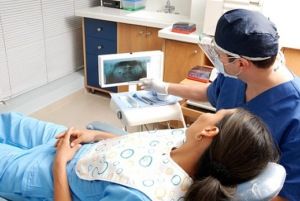News
Danish News in Brief: Dental treatment market should be more competitive
This article is more than 8 years old.
In other stories, antibiotic usage and the youth crime rate are both falling

More competition on prices could be good for patients, dentists told (photo: Max Pixell)
The Danish competition and consumer organisation, Konkurrence- og Forbrugerstyrelsen, has been looking into fees charged by dental clinics and it has concluded it would like to see maximum prices and rebates introduced instead of the present fixed tariffs, reports Politiken.
“More competition could mean that patients will receive better treatment at a cheaper price,” said Adrian Lübbert from the organisation. He also added that it might bring in new patients if dentists give rebates and special offers.
However, the association of dentists, Tandlægeforeningen, is not keen as it feels that the suggestion will lead to a deterioration in the quality of treatment.
“In other areas of the health service, the advantages of continuity in treatment and fixed contact people are emphasised. This suggestion would lead to the complete opposite,” said the chairman of the association, Torben Schønwaldt.
The association is at present engaged in negotiating its rates with the Danish regions administration, Regioner.
Antibiotic prescriptions down slightly
A Danmap report published by the national food institute, DTU Food, and Statens Serum Institut reveals that 17 percent fewer patients were prescribed antibiotics in 2016 than in 2007. However, the total was unchanged from 2005 and on a par with that used ten years ago, DR Nyheder reports. It is vital that antibiotic use is reduced because more and more bacteria are becoming immune to them. The World Health Organisation has called this one of the greatest threats to health worldwide. “In Denmark, there are not that many people who receive unnecessary antibiotics, but there will always be a ‘grey area’ where there is uncertainty and where the doctor will use the treatment preventively,” said Ute Wolff Sönksen, a senior doctor at Statens Serum Institut. As well as people, the amount of antibiotics given to animals has also fallen for the third year in a row.
Falling youth crime rate, but more criminal girls
The crime rate amongst 16 to 20-year-olds living in the country’s vulnerable neighbourhoods fell by more than a quarter between 2000 and 2015, according to an analysis of Danmarks Statistik data by social housing association Center for Boligsocial Udvikling. The fall was in line with a general decline across the country. However, the decline amongst girls was only 11 percent. Youths in the vulnerable neighbourhoods are two and a half times more likely to commit a crime than youths living outside the areas. Girls account for 17 percent of crimes committed by the age group.
New methods to map the spread of disease
Researchers at the Technical University of Denmark (DTU) have discovered two new ways that can more precisely pinpoint the spreading of infection in farm animal populations. The method can also be used to combat infectious diseases in humans, such as HIV. Computerised epidemiological models that can simulate reality in great detail have been used for some time as tools to predict how sickness spreads. For example, if a farmer changes his way of treating his animals for a certain disease, the model can be used to see what effects this will have over time. The DTU researchers have improved these models, and tests have showed they are much more precise than the earlier types of model.










































